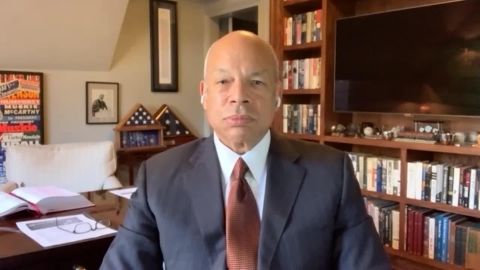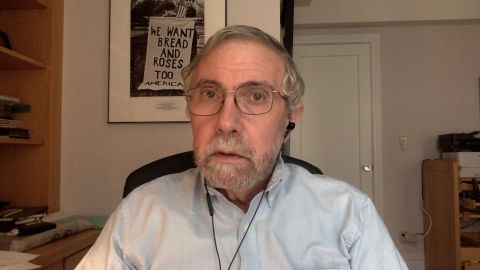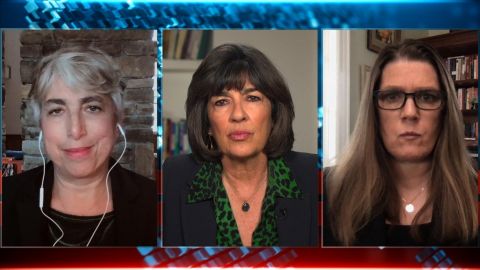Read Transcript EXPAND
PAUL KRUGMAN, COLUMNIST, “THE NEW YORK TIMES”: OK. So, the important background is two things. One is that this ain’t over, that the pandemic is going to continue to have a crippling effect on the economy, at least into the summer, and maybe some ways into the fall. We’re not going to — I’m just relying on the epidemiologists here, but we’re not going to be able to resume business as usual until a large percentage of the population is vaccinated, which means that it’s going to take a long time. During that period, life is going to be very, very hard. Lots of jobs cannot come back until the virus is under control. And on the other side, money is not a constraint. The U.S. government can borrow at incredibly low interest rates, well below the rate of inflation and even further below the growth rate of the economy, which is what really matters, so that there really is effectively no budget constraint. So, this is a time to spend a lot of money on keeping people, keeping governments, keeping businesses whole, until the pandemic is under control.
CHRISTIANE AMANPOUR: And it looks like the president-elect is inclined to take that advice. We just said that he’s unveiled this $1.9 trillion stimulus relief. I’m not sure exactly how you term it, but, nonetheless, injection. And so many financial institutions are tending to agree with what you’re saying. Just want to play what Biden himself says about the urgency of the moment.
(BEGIN VIDEO CLIP)
BIDEN: And it’s not hard to see that we’re in the middle of a once-in- several-generations economic crisis with a once-in-several-generations public health crisis. A crisis of deep human suffering is in plain sight, and there’s no time to waste. We have to act, and we have to act now. This is what economists are telling us. More importantly, it’s what the values we hold dear in our hearts as Americans are telling us.
(END VIDEO CLIP)
AMANPOUR: So, Paul Krugman, there is your advice. And then, as I said, there’s pushback from conservatives, maybe other economists. Tell me though, in general, where do most economists land on advice for the current calamity?
KRUGMAN: Oh, it’s — there’s really not a lot of dissent from the view that something like what Biden is proposing is the right thing to do. You can always find somebody who is on the other side. Of course, you will find that conservative, basically, people who are operatives who are on the other side. But the — there there’s been a sea change in economic opinion about deficits. The truth is that the panic over deficits 10 years ago was much more in the political sphere than the economic sphere. Economists were always much more relaxed about them than you would have believed if you only listened to the talk shows. But even from there, now economists have learned a lot. The world has changed. But, also, we have learned that a lot of the concerns that seemed to be pressing to at least some of my colleagues are not.
About This Episode EXPAND
Paul Krugman; Andrea Bernstein; Mary Trump; Jeh Johnson
LEARN MORE


